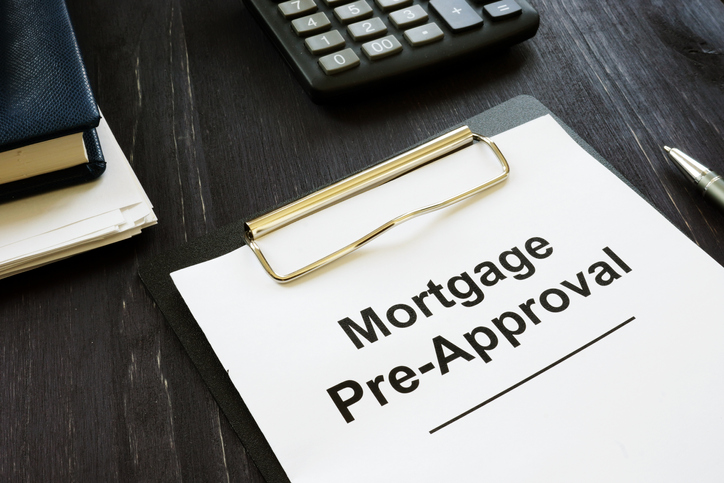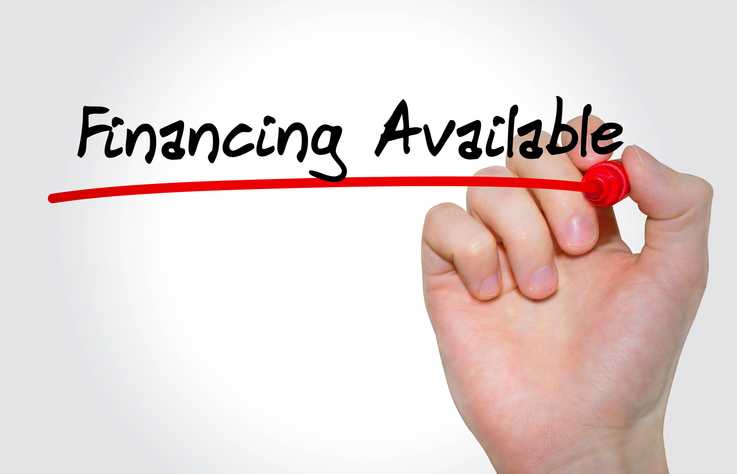Navigating the Mortgage Pre-Approval Process: A Step-by-Step Guide
When embarking on the journey of purchasing a home, one of the first and most crucial steps is obtaining mortgage pre-approval.
This process goes beyond simple budgeting, giving you a clear picture of what you can afford and showing sellers that you’re a serious and qualified buyer.
Mortgage pre-approval involves a lender examining your financial background and credit rating to determine how much they are willing to lend you.
It’s a powerful tool in your home-buying arsenal, allowing you to shop for your dream home with confidence and clarity.
In this guide, we’ll walk you through the mortgage pre-approval process, ensuring you’re well-equipped when you’re ready to make an offer on a home.
Understanding the Pre-Approval Process
Before getting carried away with the excitement of viewing homes and planning your next chapter, it’s important to familiraize yourself with the mortgage pre-approval process because it can sometimes be a big pain in the butt.
This step distinguishes serious buyers from those who are just browsing, and it’s something sellers and their agents consider when they’re deciding on an offer.
Pre-approval is a lender’s conditional commitment to lend you a specified amount, based on a thorough assessment of your financial situation and creditworthiness.
It’s more involved than a pre-qualification, which is just an estimate of how much you might be able to borrow based on unverified information you provide.
Pre-approval requires documentation, a credit check, and verification of your employment and financial stability.
Pre-Qualification vs. Pre-approval
Pre-qualification and pre-approval are both parts of the mortgage application process, but they’re not the same thing. Pre-qualification is like the first, informal chat with a lender.
You provide them with a rough outline of your finances, and they give you an estimate of the amount you might be able to borrow. This can often be done quickly, sometimes even online, and without a credit check.
Pre-approval, on the other hand, is a more formal and in-depth process. The lender will take a detailed look at your financial situation, including your credit report, proof of income, assets, and debts.
They’ll then give you a more precise figure of how much they’re willing to lend you and at what interest rate.
Pre-approval is a stronger signal to sellers that you’re a serious buyer because it shows you’ve passed a lender’s scrutiny and are likely to secure financing.
Preparing for Pre-Approval
To set yourself up for success in the mortgage pre-approval process, preparation is key.
Start by gathering all the necessary documents. You’ll likely need recent pay stubs, W-2s or 1099s, bank statements, and tax returns from the past two years. Your lender will use these to verify your income and assess your ability to repay the loan.
A detailed list of the documents you’ll need is provided below.
It’s also crucial to check your credit score and report. A higher credit score can not only increase your chances of getting pre-approved but can also help secure a more favorable interest rate. If there are any errors on your credit report, address them before applying.
Additionally, aim to reduce your debts as much as possible. Your debt-to-income ratio is a key factor in determining how much you can borrow.
Lastly, have a clear idea of your budget and limitations. Understanding what you can realistically afford will guide you in finding the right home within your means.

Documents needed for pre-approval
These are the documents that most lenders will ask for when applying for a mortgage.
Basic Documents
Extra that may be required
Credit Score Requirements
Your credit score is a crucial factor in the mortgage pre-approval process, as it influences the lender’s decision on whether to extend credit and on what terms. Generally, a higher credit score can lead to more favorable loan conditions, such as lower interest rates and a higher borrowing limit.
Most lenders require a minimum credit score of 620 for conventional loans. However, government-backed loans like FHA loans may allow scores as low as 580 with a higher down payment or even lower with adequate financial reserves. For the best rates and terms, a credit score above 740 is typically preferred.
If your score is lower than the required minimum, it’s a good idea to spend some time improving it before applying for pre-approval. This can be done by paying down existing debt, ensuring all bills are paid on time, and avoiding new credit inquiries.
here’s a table listing common loan programs and their typical credit score requirements:
| Loan Program | Typical Credit Score Requirement |
|---|---|
| Conventional | 620+ |
| FHA | 580+ (500-579 possible with 10% down payment) |
| VA | Often 620+, but varies by lender |
| USDA | Usually 640+ |
| Bank Statement | Varies, often around 620+ |
This table outlines general guidelines, specific requirements can vary by lender and other factors like debt-to-income ratio can also play a significant role in loan eligibility.
Note: For bank statement loans, the credit score requirement can vary more significantly since these loans are often tailored for self-employed individuals or those with non-traditional income sources.
Steps to apply for a mortgage pre-approval
Organize Your Financial Documentation: Gather all required documents, including income verification, asset statements, and credit information. Use the list above to determine what’s needed.
Complete the Application: Fill out the lender’s pre-approval application form, which will likely include personal and financial details.
Submit Your Documentation: Provide all the necessary documents to the lender for review.
Credit Check: The lender will perform a hard inquiry on your credit report.
Loan Evaluation: The lender assesses your application to determine if you meet the loan criteria.
Pre-Approval Decision: The lender will issue a pre-approval letter if you qualify, outlining the amount you’re eligible to borrow.
How Lenders Evaluate Pre-Approval Applications
Lenders consider several factors during the evaluation:
Credit Score: As a measure of your creditworthiness, your credit score is a key factor.
Debt-to-Income Ratio (DTI): Lenders calculate your DTI to assess your ability to manage monthly payments.
Employment History: Stable employment indicates a reliable income stream.
Assets and Liabilities: Lenders review your assets and liabilities to ensure you have the financial means to handle a down payment, closing costs, and future payments.
Property Type: The type of property you’re looking to buy can also affect the pre-approval, as some loan types have specific property requirements.
Without pre-approval, agents and sellers may not prioritize you as a buyer, particularly in competitive markets where homes sell quickly and multiple offers are common.
After receiving pre-approval
Once you have your mortgage pre-approval in hand, it’s important to understand exactly what it means and how you can use it in your home search.
Understanding Your Pre-Approval Letter
Your pre-approval letter will typically include the maximum loan amount you are pre-approved for, the loan program, and possibly an interest rate. It may also list any conditions that must be met before final loan approval is granted.
Timeframe and Validity of the Pre-Approval
Pre-approval letters are usually valid for 90 to 120days. This is because lenders recognize that financial situations and credit scores can change. If you haven’t found a home within that time, you may need to renew your pre-approval. Keep in mind that changes in your financial situation, like a new job or additional debt, could affect your pre-approval status.
How Pre-Approval Can Help in the Home Buying Process
Negotiating with Sellers Using Pre-Approval
Common Pitfalls to avoid
After you’ve received your pre-approval, it’s important to maintain the financial status quo as changes can jeopardize your mortgage process.
Mistakes to Avoid After Receiving Pre-Approval
- Major Purchases: Avoid taking on new debt like car loans or credit card debt, as it can alter your debt-to-income ratio.
- Changing Jobs: A new job could be seen as unstable by lenders unless it’s a clear advancement in the same field.
- Missing Payments: Keep paying all your bills on time; missed payments can hurt your credit score.
How Financial Changes Can Impact Pre-Approval
Any significant changes to your financial situation can lead to a reassessment of your pre-approval. This could mean a reduced loan amount or even a revocation of the pre-approval if the lender determines the changes affect your ability to repay the mortgage.
If you’ve switched jobs, been let go, resigned, or taken on additional debt through credit cards or loans, be aware that lenders will re-verify your financial status. They routinely conduct a final review before completing the loan process. They will find out about these events before closing. It’s best to communicate any changes with your mortgage loan officer to avoid problems with the seller and your loan.






